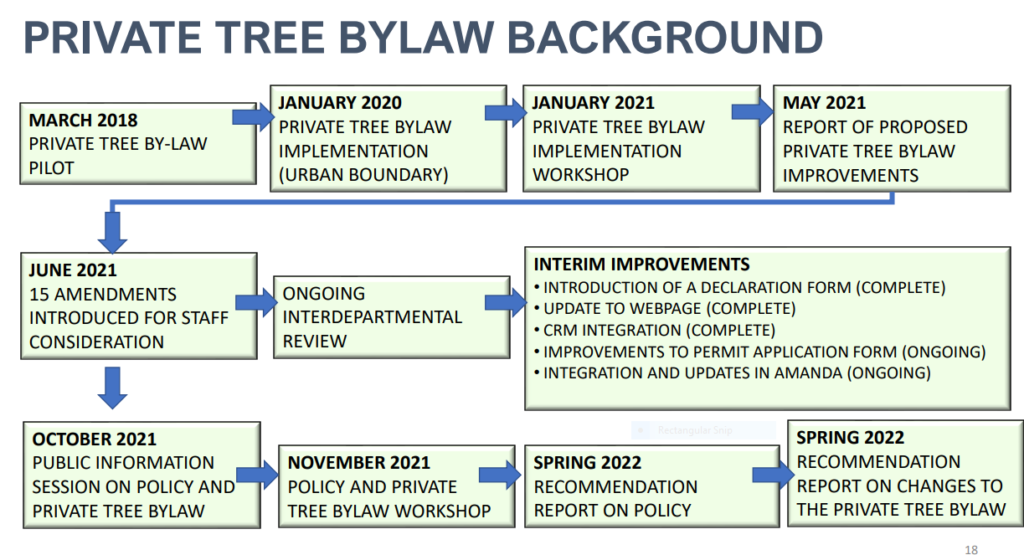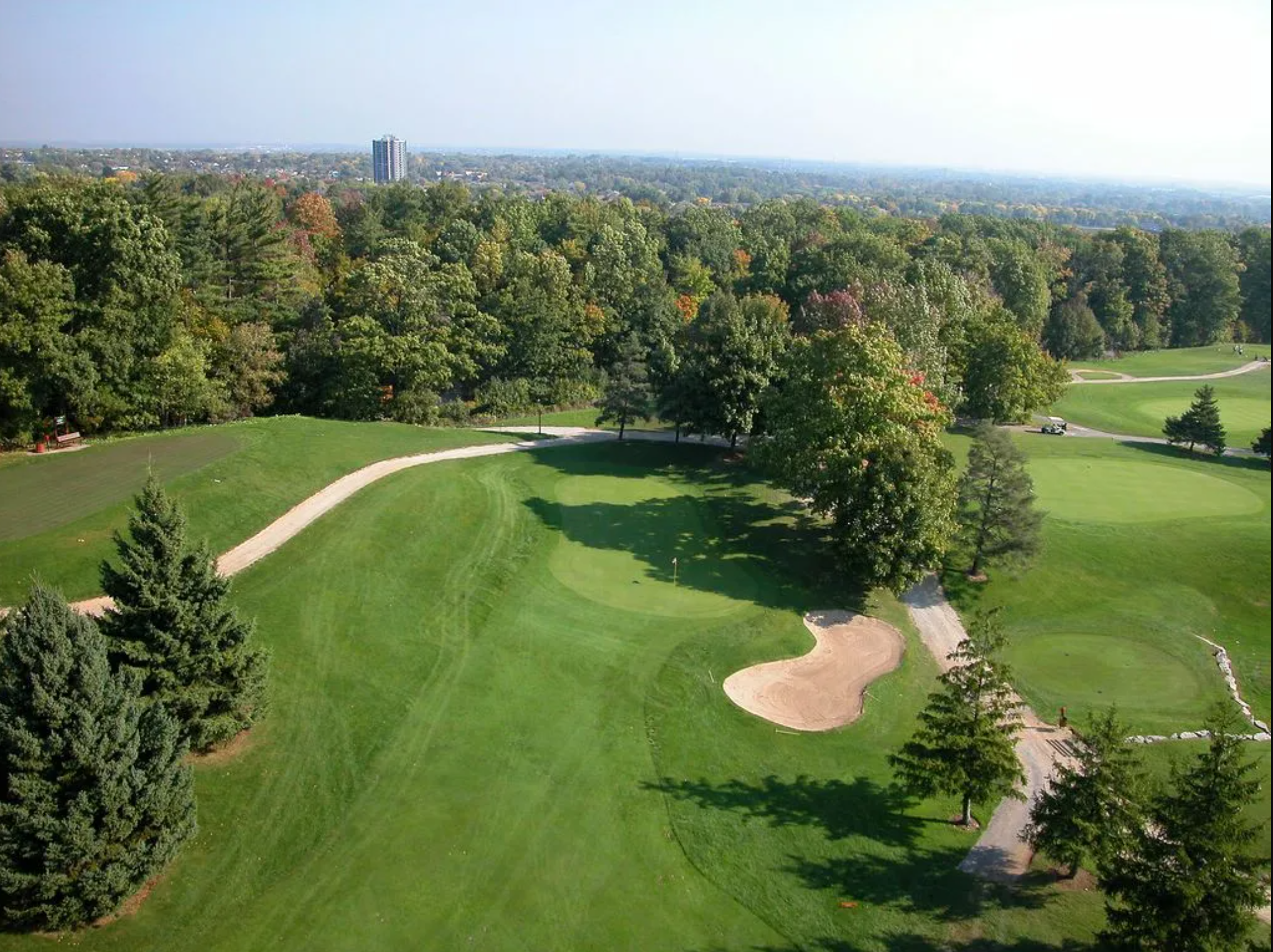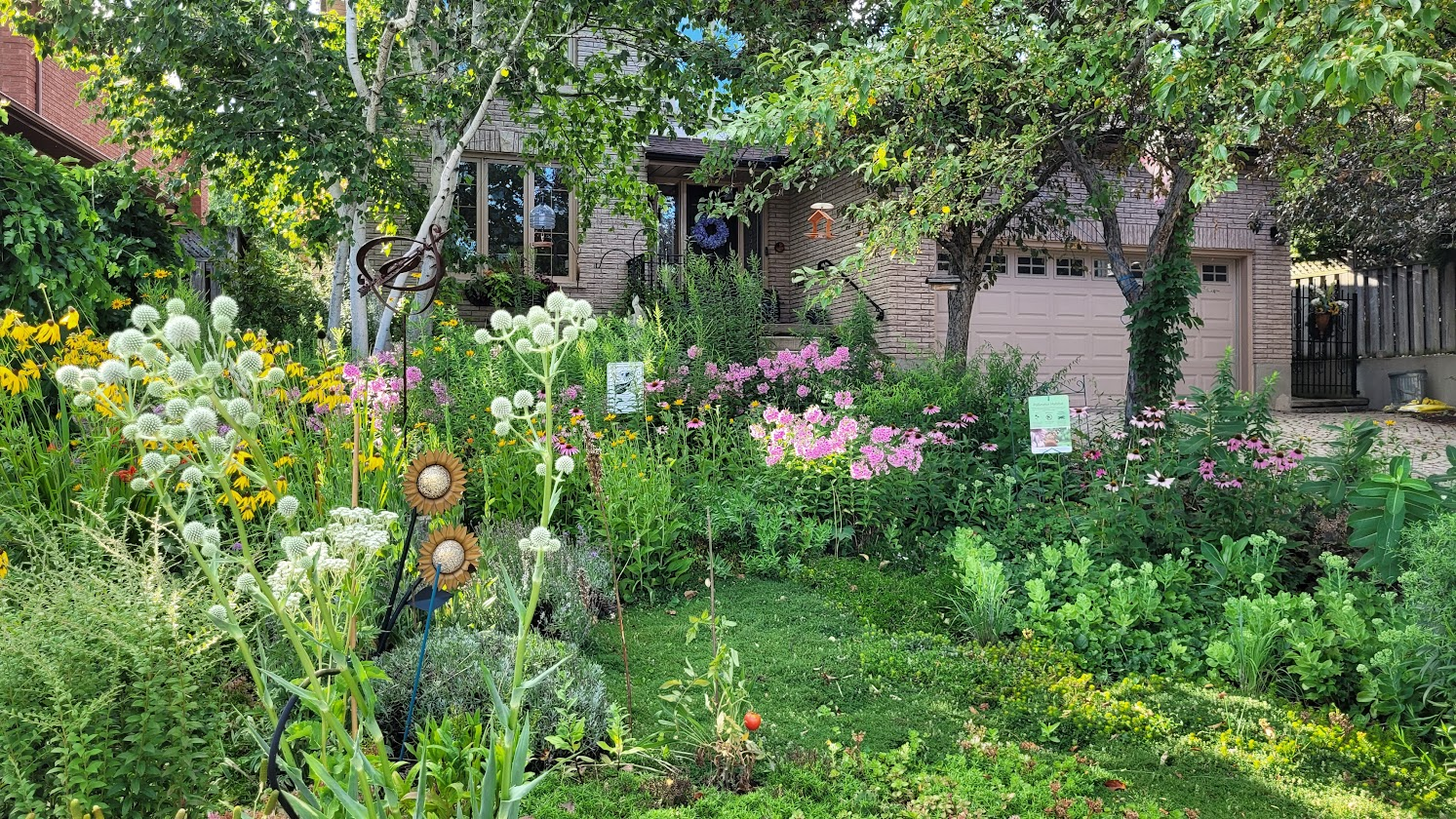Make it simpler. Reduce the fees. Reconsider the number of staff. These were among the themes that emerged from this week’s committee workshop aimed at improving Burlington’s Private Tree Bylaw.
The bylaw is generally seen as overly complex, cumbersome, and expensive for everyone involved. It has been the source of angry calls to local politicians, at least one of which Mayor Marianne Meed Ward described as “distressing.”
This week’s workshop was just the latest in a series of discussions about the troubled bylaw, which started as a pilot in 2019 and was confirmed in 2020. Essentially, it regulates the removal of trees over 20 centimetres (8”) in diameter or more than five trees between 10 and 20 centimeters (4–8”) in diameter, requiring permits, replacements or compensation. The goal is to protect enough existing trees, or replace enough, to ensure the city’s tree canopy grows. All members of council support the concept but now understand that the existing bylaw is not working.

Mayor Meed Ward and Councillor Paul Sharman dominated the discussion this week.
“Throughout this workshop you’ll hear me advocating for simple. Simple to understand. Simple to explain. Simple, simple, simple to implement,” said the mayor.
At one point, Sharman referred to the permit fees for removal of trees as “preposterous” and a “cash grab.”
“We’re bullying people who can’t afford to get the trees out that they want out, then we’re damaging their quality of life,” said Sharman.
The bylaw, as originally envisioned, was to pay for itself with user fees. It became so expensive, however, that taxpayers were eventually assigned 35% of the nearly half-million-dollar cost. The latest problem is that the taxpayer’s share is expected to rise to 50% in 2022 and, if nothing changes, eventually to 70%.
Part of the financial burden is the cost of the five staff that administer the bylaw. That fact got some attention at this week’s meeting.
“We have five people enforcing one tree bylaw and we have eight bylaw enforcement officers to enforce forty-seven others. It’s hard for me to wrap my head around that,” commented Meed Ward.
“I’m where the mayor is on this,” agreed Sharman.
Members of council were debating staff recommendations for improvements to the bylaw, along with their own recommendations and input from a recent public meeting and community survey.
Part of the problem is that the options for improvement include many, many variables, such as the level of fees, possible exemptions, the necessity for staff inspections, permit requirements, compensation for lost trees, measurement of tree health, security deposits, sliding scales, and more.
The committee workshop resolved nothing.
City staff will consider what to do next, including whether to have another public meeting, but the goal is to have a new draft bylaw by spring of 2022.
Councillor Rory Nisan seemed pessimistic about the whole issue. “Eventually, we’re just going to have to go ahead with something and try it again for a year.”
Mayor Meed Ward had pushed for the new tree bylaw during her 2018 election campaign.




